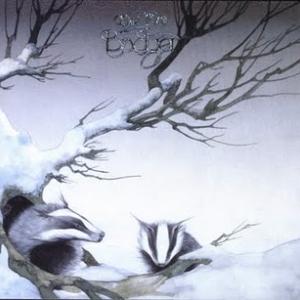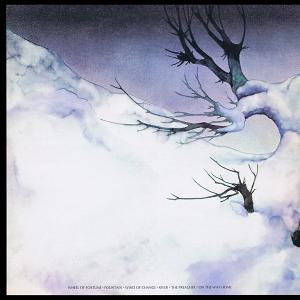Strawberry Bricks Entry:
Following his exit from Yes in August of 1971, organist Tony Kaye quickly reunited with his former Yes bandmate Peter Banks for the first Flash album. However, Kaye didn't last with the band; and by the end of 1972, he had moved on to form Badger with bassist David Foster, a former associate of Jon Anderson in The Warriors. Kaye and Foster teamed up with Roy Dyke (of Ashton, Gardner & Dyke) and guitarist Brian Parrish. Their debut album One Live Badger was recorded live at the Rainbow Theatre in December 1972, at a show opening for none other than Yes. Add to that a Roger Dean album cover and Jon Anderson in the producer's chair, and you have the potential for a prog rock masterpiece—though Badger at this stage were a jam-type band, perhaps most like Traffic. Both "Wheel of Fortune" and "Fountain" reveal Kaye's underappreciated command of the organ, Mellotron and synthesizer; he never got his due with Yes, but he's front and center here, and he delivers. "River" gives Parrish a chance to shine but overall the preachy lyrics and forward-leaning rhythms lend a kind of monotony to the album. Prior to recording their next album, Kaye and Dyke split, while former The Creation bassist Kim Gardner and singer Jackie Lomax came aboard. With New Orleans legend Allen Toussaint producing and Lomax writing, it's no wonder that their 1974 release White Lady shifted gears to a mostly soulful approach. After Badger's demise, Kaye would move to Los Angeles, where he would form Detective with Michael Des Barres. A hard rock outfit, they'd most famously sign with Swan Song Records; however, with success not in the cards, Kaye would work as a hired hand for David Bowie and Badfinger before eventually resurfacing with his former Yes cohort Chris Squire in Cinema in 1982.



